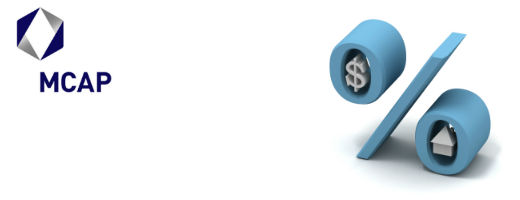Article courtesy of MCAP.
As housing market data begins to show that prices may be trending a little lower – or at least flat – in some areas in Canada, the debate about the relative benefits or detriments of this new reality has begun in earnest. With new mortgage rules also in place for almost a month now, what does it all mean? If sales fall off and if prices decline, is this a positive development which will position the market for long term stability or will it be another drag on the sputtering economic recovery?
When a leading national realtor publishes its Price Survey and Market Survey Forecast and calls it “Canada’s Housing Market at a Tipping Point”, it’s pretty clear that the trajectory of the real estate market over the past three years is probably not sustainable. Royal Lepage CEO, Phil Soper, a vocal critic of the government’s recent mortgage rule tightening, commented on the data in his company’s report that “home prices cannot grow faster than salaries and the underlying economy indefinitely”. He feels that the market was already cooling when the government tightened mortgage rules, referring to them as “unfortunate”.
 The Globe and Mail’s personal finance columnist, Rob Carrick, made the case for some of the benefits of price declines in the market in his column last month. Rationality and balance will return to the market, he suggests, and the urgent desire to enter the market for fear of being priced out of it, will subside. But, even if we agree that the pace of price increases could not have continued and that the market needed to cool to preserve its long term stability, what impact could falling house prices have on the Canadian economy?
The Globe and Mail’s personal finance columnist, Rob Carrick, made the case for some of the benefits of price declines in the market in his column last month. Rationality and balance will return to the market, he suggests, and the urgent desire to enter the market for fear of being priced out of it, will subside. But, even if we agree that the pace of price increases could not have continued and that the market needed to cool to preserve its long term stability, what impact could falling house prices have on the Canadian economy?
After enjoying annualized gains averaging 6.2% over the past 10 years, many Canadian home owners are feeling confident in their personal financial circumstances, buoyed by healthy and growing levels of home equity. This confidence continues to fuel consumer spending and keep certain sectors of the economy strong. In the US, prior to the sharp pull-back in the real estate market, the economy was driven largely by the American consumer whose voracious spending was supported by significant gains in home values. When values finally dropped, the American consumer suddenly felt much poorer and then stopped spending. Mr. Carrick suggests that homeowners’ recent gains in Canada will still be solid even if prices were to correct by 10%. This would mean that values would have increased by 5.1% every year, on average, forz the past 10, rather than by 6.2%. While the arithmetic is clear, what isn’t clear is the psychological impact of feeling poorer – even only a bit poorer – on consumer spending. If Canadian households, already under pressure to pay down debt, feel pinched by eroding home equity levels, they could decide to follow a course of household austerity and stop spending. If this happens, the larger economy, including employment growth, will also suffer.
Mr. Carrick points out that first time home buyers, who represent half of the home purchasing market, will enjoy increased affordability if home prices correct. They will be less tempted to stretch the limits of their re-payment capacity in their borrowing and they should be less inclined to succumb to the frenzy of bidding wars for houses. All valid analysis for sure but if the market correction is less orderly and more sudden than expected, first time buyers may be tempted to sit on the sidelines and wait for what they think is the bottom of the market and the end of the correction. Existing homeowners who are both buying and selling need not consider this strategy unless they are purchasing a significantly more expensive home. If enough buyers elect to wait out a correction, the correction itself may be sharper and deeper than expected.
If the market pulls back enough, investors will, once again, be attracted to buy. As Mr. Carrick reminds us, the principle of buying low is still a critical element of any successful investment strategy and, especially in some markets, Canadian residential real estate has not recently presented many opportunities to buy low. Rather, it has created another not so sound investment strategy which says “buy now before prices move even higher”. Few prudent investors follow this approach but it has been a key driver of some of the recent price run-ups in certain hot markets.
The return of rationality to the market would itself be a healthy development. The balance which must be struck in order to create the most beneficial consumer and market perceptions is certainly a challenge. If, as Royal Lepage suggests, the Canadian housing market is at a “tipping point”, the difference between rationality and irrational exuberance may be slim and the risk is that it tips the other way into a correction which is too sharp. If there is a correction in Canadian home values, let’s hope that we realize its benefits without suffering the most severe consequences…
